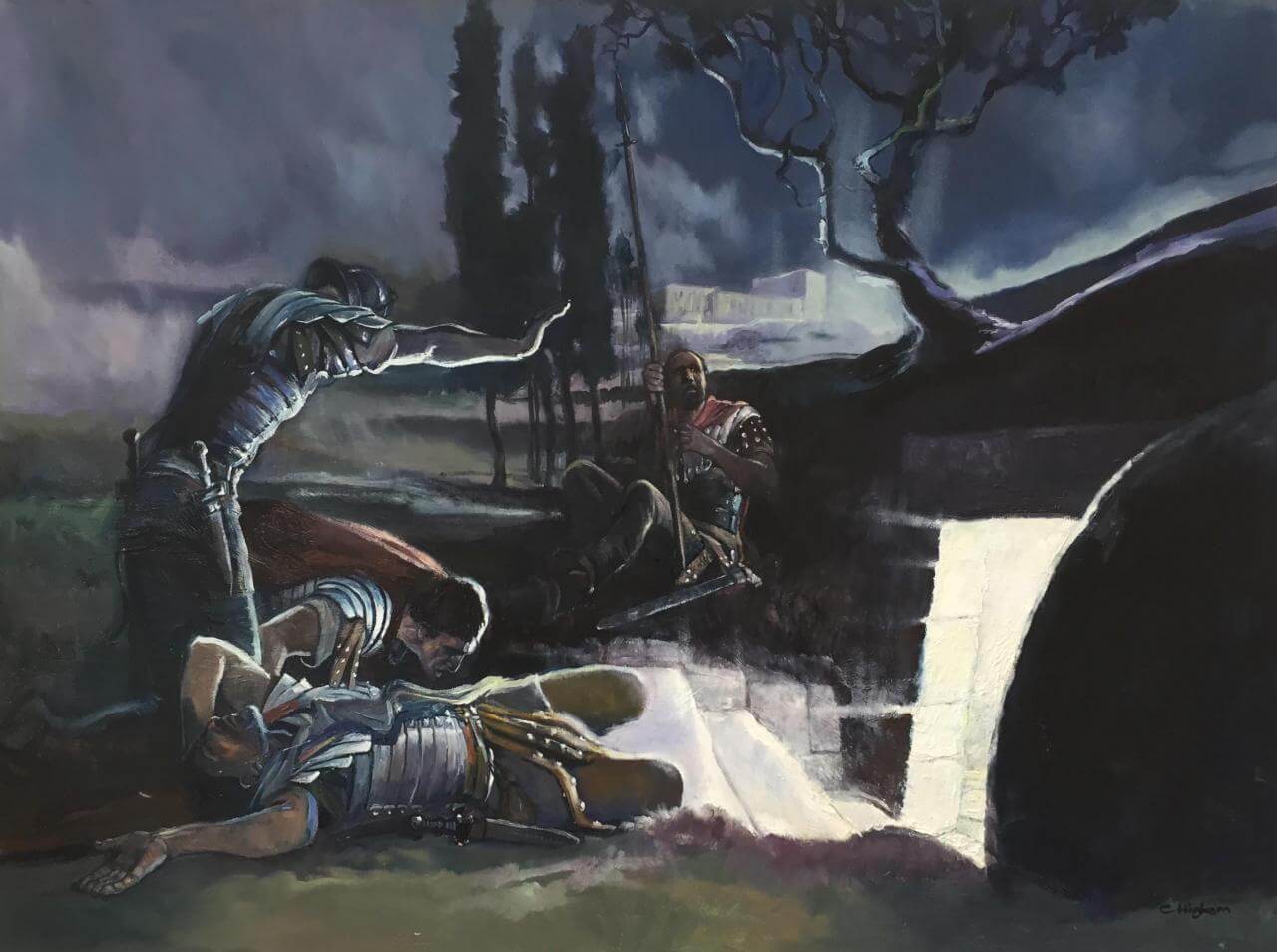Featured
Do Christians And Muslims Really Worship The Same God?
| | Apologetics, Islam | 0 comments“We all worship the same God”. Table of Contents 1) Where YHWH and Allah Appear Similar 2) Where Allah’s Character Contradicts YHWH’s Goodness 3) Where Their Revelations Directly Contradict Each Other 4) YHWH’s Love for the Nations vs. Allah’s Commands to Subjugate 5) Can God Be Seen? What the Bible and Qur’an Say 6) Salvation by Grace vs. Salvation by Works Conclusion: Same God? Or Different Revelations? You’ve heard it from politicians, celebrities, and even some pastors. It’s become something of a modern mantra, trying to shoehorn acceptance of other beliefs and blend all religions into one, especially the Abrahamic ones. But what if the Bible and Qur’an tell different stories? Let’s see what their own words reveal so you can judge for yourself. This Tweet recently caused a stir on social media 1) Where YHWH and Allah Appear Similar Many point out that Jews, Christians, and Muslims share a belief in one eternal Creator God. That’s true — up to a point. Both the Bible and Qur’an describe God as powerful, all-knowing, merciful, and more. Here’s a list comparing some of the common shared attributes between YHWH and Allah, with direct citations from both Scriptures: 26 Shared Attributes of YHWH and Allah According to the Bible (NRSV) and the Qur’an Eternal YHWH: “From everlasting to everlasting you are God.” — Psalm 90:2 Allah: “He is the First and the Last…” — Surah 57:3 Creator YHWH: “In the beginning God created the heavens and the earth.” — Genesis 1:1 Allah: “The Originator of the heavens and the earth…” — Surah 2:117 Omnipotent (All-Powerful) YHWH: “Nothing is too hard for you.” — Jeremiah 32:17 Allah: “Allah is over all things competent.” — Surah 2:20 Omniscient (All-Knowing) YHWH: “Even before a word is on my tongue, O LORD, you know it.” — Psalm 139:4 Allah: “He knows what is on the land and in the sea…” — Surah 6:59 Omnipresent (Present Everywhere) YHWH: “Where can I go from your Spirit?” — Psalm 139:7–10 Allah: “He is with you wherever you are.” — Surah 57:4 Holy YHWH: “Holy, holy, holy is the LORD of hosts.” — Isaiah 6:3 Allah: “The Holy One (Al-Quddus).” — Surah 59:23 Just YHWH: “A God of faithfulness and without injustice.” — Deuteronomy 32:4 Allah: “Is not Allah the most just of judges?” — Surah 95:8 Merciful YHWH: “The LORD, merciful and gracious…” — Exodus 34:6 Allah: “The Most Gracious, the Most Merciful.” — Surah 1:1 Compassionate YHWH: “As a father has compassion on his children…” — Psalm 103:13 Allah: “He is the Forgiving, the Affectionate.” — Surah 85:14 Faithful YHWH: “Great is your faithfulness.” — Lamentations 3:22–23 Allah: “Indeed, the promise of Allah is truth.” — Surah 30:60 Unchanging YHWH: “For I the LORD do not change.” — Malachi 3:6 Allah: “None can change His words.” — Surah 6:115 Sovereign YHWH: “The LORD has established his throne in the heavens…” — Psalm 103:19 Allah: “Blessed is He in whose hand is dominion…” — Surah 67:1 Loving YHWH: “God is love.” — 1 John 4:8 Allah: “Indeed, my Lord is Merciful and Affectionate (Al-Wadud).” — Surah 11:90 Forgiving YHWH: “I will not remember your sins.” — Isaiah 43:25 Allah: “Allah forgives all sins…” — Surah 39:53 Wrathful toward evil YHWH: “The LORD is a jealous and avenging God…” — Nahum 1:2 Allah: “For them is a severe punishment.” — Surah 3:4 One/Unique YHWH: “The LORD is one.” — Deuteronomy 6:4 Allah: “Say: He is Allah, One.” — Surah 112:1 Jealous of worship YHWH: “I the LORD your God am a jealous God.” �...
Raised in the Heavenlies!
| | Theology, Easter | 0 commentsEaster is upon us once again! Lent is over, Good Friday has passed and now the time for mourning and fasting is complete. It's a time to feast, a time to remember and celebrate the resurrection of Christ as we look forward to our own final resurrection!But what really is the resurrection? How will we be resurrected, and what does it mean for us that Jesus rose again? Let’s explore what this means for us as Christians, and see what the Scriptures say. The resurrection is spiritual! That headi...
The Author of Life Knew Death For Our Sake!
| | Theology, Easter | 0 commentsA week or so ago, I stayed the night at a local monastery with a friend. We got to see, and be partially involved in the day to day life of the Monks there, especially during mealtimes. We sat and ate in silence together while someone read to us, which was actually more enjoyable than I expected it to be. I can't remember what the book was called now, but it was to do with the Passion and what the crucifixion meant, and the point they were reading about was when the Roman soldier stabbed Jesus i...
Man-Made Tradition vs Apostolic Tradition
| | Theology, Early Church | 0 commentsQuite often in discussions which are about or involve some aspects of early church history or practices earlier Christians did, someone will inevitably throw out the "show stopper" that is "it's all just man made tradition" therefore not valid and the discussion is over. It’s as though saying it's "man made", without considering anything other than that they can't find an isolated chapter and verse in the bible which states something explicitly, means they've "won" the debate! Nothing more to...
Great Lent: The Season of Fasting
| | Early Church History, Lent | 0 commentsFasting A spiritual and physical discipline If you are looking for a Lenten reading plan, make sure to check out my book, 40 Days with the Fathers: A Journey Through Church History, which will take you through the first 400 years of church history in forty days! Lent is upon us once again (according to Western tradition), and so I thought it’d be good to write something on the discipline of fasting, which is often neglected or overlooked in many Protestant churches. And much like any major...
What is Contemplative Prayer?
| | Theology, Prayer | 0 commentsIn the quiet, still silence, I await my God. There seems to be some misgivings about the idea of “contemplative prayer” (also referred to as Christian Meditation) and in some of the descriptions I've read, I would agree that it can seem iffy. Contemplation, or sometimes known as Lectio Divina, is in its most basic form, the idea and practice of waiting on the Lord. Often in silence or while you ponder on scripture or when you seek an answer or just to rest in his ...







